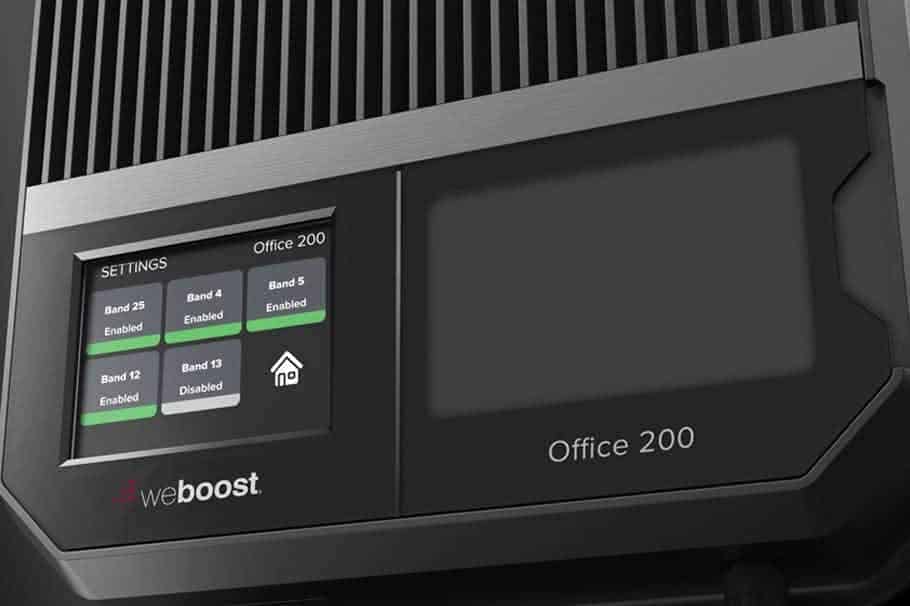Do You Have a Business Continuity Plan?
Posted on 11/6/2023 by Meredith Pond

When you own a business in today’s fast-moving market, it’s essential to expect the unexpected. This is why you need to create a plan for how you’ll continue to operate in case of an unforeseen disruption – before you get blindsided.
Created in advance, a business continuity plan (BCP) will help you avoid panic. Instead, you’ll be able to act strategically to mitigate the impact of a potential catastrophe, such as a natural disaster, cyberattack, or pandemic situation.
Despite the importance of having a BCP, many businesses overlook this critical component of their strategy. While enterprise-level businesses usually have more resources to weather disruptions, small and medium-sized businesses need to be particularly strategic and scrappy in a crisis.
Whether you’re a retail shop, manufacturer, clinic, or ad agency, this article will help you gain a better understanding of business continuity planning and the steps you can take to protect your business when the unexpected happens.
What is a business continuity plan?
Business continuity planning is a situation-specific plan that addresses potential threats to the long-term operation of a business. While not all threats can be foreseen or avoided, the goal of a business continuity plan is to identify those scenarios that are most likely to occur and determine preventative measures to mitigate them, with tactical responses that can be implemented in real-time.
Why do SMBs need a business continuity plan?
Your business continuity plan is a situation-specific plan that addresses potential threats to the long-term operation of your business. While not all threats can be foreseen or avoided, the goal of a BCP is to identify those scenarios that are most likely to occur, and determine preventative measures to mitigate them with tactical responses that can be implemented in real-time.
Why do you need a business continuity plan?
As a small business, you probably can’t afford to be out of commission for even a short period of time. A business continuity plan helps you transition smoothly from normal operations into crisis mode with minimal disruption.
Business continuity planning isn’t just about surviving short-term disasters. It’s also about preparing for long-term changes that could threaten your business model and brand. A disruptive competitor or market shift can be as harmful to your business as any disaster.
How to create a business continuity plan

For small businesses, business continuity planning may begin as simply as having a couple of people who know how to do every job in your company. When someone gets sick or quits unexpectedly, those people can step in and make sure the work still gets done. That’s especially important for small companies where one or two employees can have a big impact on operations.
As you consider other aspects of business continuity planning for your business, you should anticipate how the plan will be applied to each department. For your human resources staff, BCP may mean having a succession plan in place so that someone is always prepared to fill a vacated leadership role if necessary. For the marketing department, your business continuity plans might include backup files of creative work in case something goes wrong with your primary digital assets. In production, part of your BCP may be to establish relationships with multiple backup suppliers in different geographical areas, in case your go-to sources are affected by supply chain issues.
Because priorities and operations vary between companies, the business continuity process will look different for every business. However, every business continuity plan should include several basic elements:
Risk assessment: Identify potential risks that could cripple business operations, such as disasters, supply chain disruptions, cyberattacks, competitor hostility, or sudden market shifts.
Business impact analysis: Assess the potential impact of each identified risk on your critical business functions, including operations, finances, marketing, and reputation.
Recovery objectives: This usually refers to specific goals and timelines for restoring critical business functions after a disruption. For example, you may set a goal of one hour for restoring critical payment processing, and 24 hours for something less critical, like re-establishing social media.
Communication protocols: Every BCP requires protocols for communication. You’ll need to decide how you and your staff will communicate with each other or re-establish communication channels if they are disrupted. Keep in mind that, like any other business function, the ability to communicate and rely on your tech infrastructure will be key to your survival as you implement any BCP.
Recovery strategies: Outline strategies for responding to each identified risk, such as backup power and recovery procedures, contingency plans, and perhaps most critically, communication protocols. After all, you would have a hard time implementing any BCP if you can’t communicate with all involved.
Plan development: Detail the BCP development process, including who will be responsible for creating the plan, how often it will be reviewed and updated, and how it will be tested.
Training and awareness: Include training and awareness programs for employees to ensure they understand their roles and responsibilities in the event of a disruption.
Maintenance and review: Your business continuity plan should be regularly reviewed and updated to ensure it remains relevant and effective as risks, business operations, and market conditions evolve.
By including these key elements in a BCP, you can better prepare for unexpected disruptions, protect your assets, and maintain the trust of customers and stakeholders.
In business continuity, digital transformation is key.

At the center of any business continuity plan is an organization’s ability to maintain critical functions and processes during a crisis. The technology that supports these functions and processes is crucial to managing operational impacts and implementing the BCP you’ve worked to create.
Digital transformation refers to combining technology with processes and services to improve business operations. This can include things like adopting cloud-based software solutions, developing new services and products, improving security and data protection, and more. The key is to adopt new technology that helps your business become more agile, flexible, and competitive.
For your small-to medium-sized businesses, digital transformation isn’t an option; it’s a necessity. Your customers will expect you to meet their needs for speed and convenience, and your tech-savvy competitors will be trying to beat you. Your employees need the latest tools to help them work smarter and make customers happier. If you’re not continually evolving with technology, your business will be left behind.
Digital transformation is especially important for smaller businesses. There are some exceptions, but the majority of small businesses are a little behind larger companies when it comes to this transformation.
While large companies are typically better funded and can move quickly on digital initiatives, small business owners often have limited resources. You may be hesitant to invest in new technology due to cost concerns, lack of the latest knowledge, or risk hesitancy.
Advanced connectivity can future-proof your business.

Connectivity and communication are more vital than ever for your business to succeed. Perhaps the most important example we can discuss is 5G networks. Let’s examine how leveraging the advances in 5G connectivity can help your business with continuity planning, agility, and future changes in the market.
Increased connectivity
5G connectivity is much faster than previous generations of cellular networks, with much more capacity. This can help your business stay connected with customers, employees, and partners, ensuring business continuity in the face of unforeseen circumstances. Taking advantage of 5G now can help future-proof your business to keep up with the technologies to come. The more modern your connectivity infrastructure, the more resilient you’ll be when challenges arise.
Enhanced mobility
Without mobility, adaptability will be hard to come by. You can leverage the power of mobile devices to stay connected and productive from anywhere. Should your employees have to work remotely for a time, this crucial mobility will increase your ability to roll with the punches and enact your business continuity plan.
Improved data analytics
5G enables faster and more efficient data transfer, which can help you collect, process, and analyze data in real-time. This provides real-time insights into customer behavior, market trends, cash flow, and other factors that can make all the difference between success and failure.
Enhanced customer engagement
Businesses can leverage the power of immersive technologies such as augmented reality (AR) and virtual reality (VR) with 5G’s more robust capability. This helps you create more engaging and interactive experiences, showing your products and services in a better light. 5G will also help you meet customers’ connectivity expectations when they visit. That all adds up to customer loyalty and revenue growth that could see you through a crisis.
Increased automation
5G connectivity enables you to automate more business processes. Examples include inventory management, order processing, and equipment maintenance, often achieved through IoT devices that require constant, high-capacity connectivity. This can help to increase efficiency and reduce costs, while also freeing up employees to focus on building your business to meet future challenges.
FAQs about business continuity plans
Why is a business continuity plan important?
A BCP is crucial for a business as it helps to ensure that the business can continue operations and services, minimizing losses during and after a disruptive event. Without a BCP, businesses may face revenue loss, reputational damage, and potential business failure during a crisis.
What are the key elements of a BCP?
Key elements of a BCP include a business impact analysis, recovery strategies, plan development, and training/testing/maintenance of the plan.
What types of disruptions can a BCP address?
A BCP can address a wide range of disruptions, including natural disasters (like floods, fires, earthquakes), man-made disasters (like cyber-attacks, data breaches, vandalism), and unexpected events (like power outages, system failures, sudden loss of key personnel).
What is the difference between a BCP and a crisis management plan?
A BCP focuses on ensuring business operations continue during a disruption, while a crisis management plan is centered on managing the crisis itself, including communications and immediate responses to the crisis. Both are essential parts of an organization’s risk management strategy.
The takeaway
Business continuity is more important than ever before. Businesses with a dynamic 5G infrastructure will have the upper hand over the competition, in times of difficulty or relative ease.
When cellular signal is reliable, small businesses can take full advantage of today’s technology to adapt quickly and stay competitive. If your business struggles with spotty coverage, weBoost for Business solutions can solve the problem.
Once your system is installed, your customers and employees can access faster data rates, fewer dropped calls, better voice quality, and future-proofing 5G capability. Shop our lineup of business solutions today or reach out to us with any questions.
Where do you need to boost your signal?
Popular Articles
Similar Articles


weBoost Keeps Customers Connected, Charged, and on the Go with the Launch of Dash
Read More

